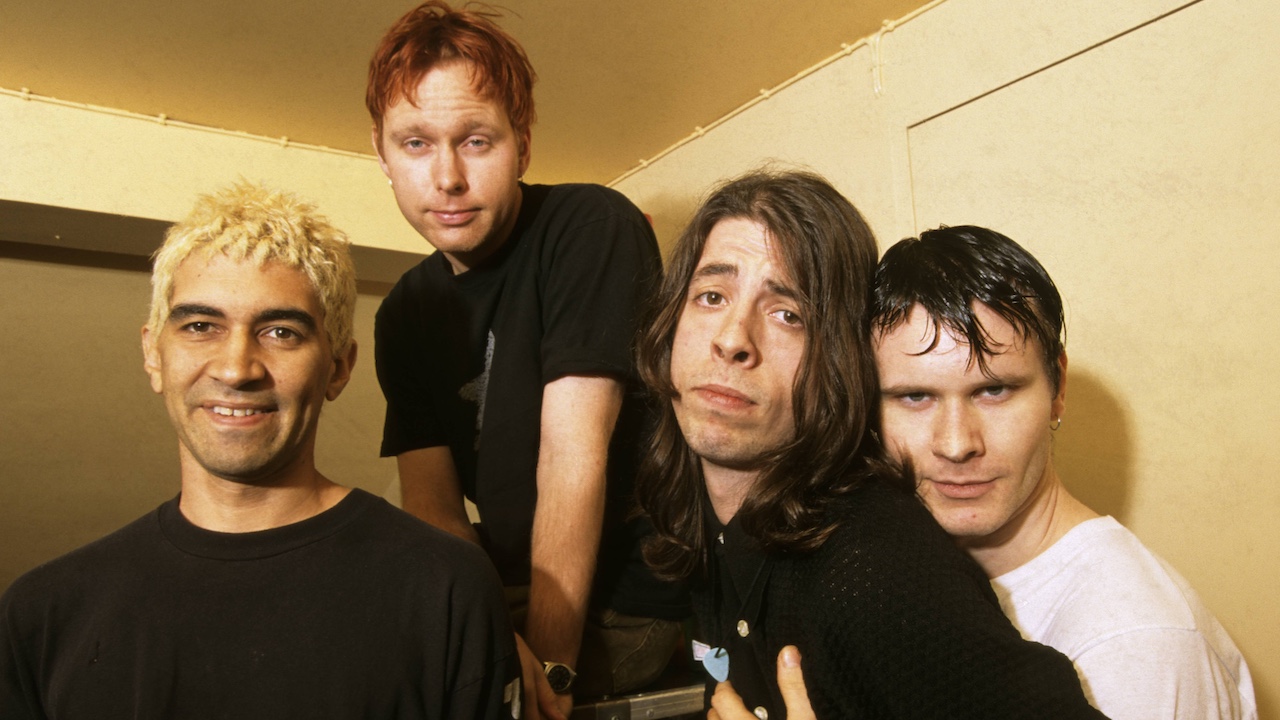“It was like a renewal or a reawakening”: Dave Grohl was struggling after Kurt Cobain’s death. Then he wrote This Is A Call and everything changed
The story of Foo Fighters’ debut single, which turns 30 next month, and why it's the song that Dave Grohl says saved his life

Select the newsletters you’d like to receive. Then, add your email to sign up.
You are now subscribed
Your newsletter sign-up was successful
Want to add more newsletters?

Every Friday
Louder
Louder’s weekly newsletter is jam-packed with the team’s personal highlights from the last seven days, including features, breaking news, reviews and tons of juicy exclusives from the world of alternative music.

Every Friday
Classic Rock
The Classic Rock newsletter is an essential read for the discerning rock fan. Every week we bring you the news, reviews and the very best features and interviews from our extensive archive. Written by rock fans for rock fans.

Every Friday
Metal Hammer
For the last four decades Metal Hammer has been the world’s greatest metal magazine. Created by metalheads for metalheads, ‘Hammer takes you behind the scenes, closer to the action, and nearer to the bands that you love the most.

Every Friday
Prog
The Prog newsletter brings you the very best of Prog Magazine and our website, every Friday. We'll deliver you the very latest news from the Prog universe, informative features and archive material from Prog’s impressive vault.
Rewind 30 years and no-one on the planet, not even the man himself, would place bets on Dave Grohl becoming one of the most famous frontmen of his generation. It was May 1995, just over a year since the death of Grohl’s Nirvana bandmate Kurt Cobain and the subsequent dissolution of a band who had turned rock music inside out and changed everything. Grohl had been a big part of that, of course, his powerful, pugilistic drumming style key to what made Nirvana’s best songs so exhilaratingly impactful. Everyone assumed that’s where Grohl would stay, doing his thing behind the kit, totally unaware he was about to change lanes and launch a hugely triumphant second act.
There were some signs of what was about to come. Grohl had recorded the material that would make up Foo Fighters’ debut a few months before, in October, 1994, turning to music, as he has often done throughout his career, as a way of channelling grief. After a few club shows in early ’95, he’d hit the road with his new band throughout spring opening for punk veteran Mike Watt, but for the wider world, the news that one of the world’s best drummers was downing sticks and heading out front arrived with the release of Foo Fighters’ debut single This Is A Call in June 1995.
The track is about to turn 30 and remains a key song in both the Foo Fighters story and, more than that, Dave Grohl’s life. A few of the cuts that made up their self-titled debut (or his self-titled debut, given he played everything himself) had been banging around for a while but it was This Is A Call that provided the real spark.
“This Is A Call had a different feel,” Grohl told Apple Music a few years ago. “It was a bit more uplifting than the other stuff that I’d written before and, especially coming after Kurt’s death, This Is A Call was like a renewal or a reawakening where I actually found joy in playing and writing. It’s strange because when you’re in that moment and you’re in a period of loss or grief or mourning, it’s like you pick up an instrument and that just spills out.”
Up until that point, Grohl explained, his songwriting had been mired in mourning following Cobain’s death, everything rooted in grief. “I’d always come home from tours and recorded songs by myself, but that feeling was gone,” he said. “I didn’t really want to write or even listen to music.”
There were rumours in the press that Grohl was about to join Pearl Jam and he also got offered a permanent gig with Tom Petty And The Heartbreakers, considering it before only playing with them for a one-off performance on Saturday Night Live. But he already had another idea in mind.
"I’d just started doing this thing,” he told Howard Stern a few years ago. "And I just felt weird about going back just to the drums, because it would just have reminded me of being back in Nirvana. It would have been sad, for me personally. It would have been an emotional thing to be behind the drums every night and not have Kurt there. So I was like, ‘Nah, fuck it. I’m going to try this other thing’.”
The latest news, features and interviews direct to your inbox, from the global home of alternative music.
That "other thing" had received a big boon with This Is A Call, a song that felt like an artistic turning of the corner for its writer. “This Is A Call came from somewhere else. “Every time I picked up a pen or a guitar and I’d start writing something,” he continued, “it was just depressing. After a while, I’m like, ‘Is that all I’ve got?’. And then This Is A Call, something like that, it just felt OK.”
Rather than stay put and deal with the aftermath of Cobain’s death and the end of Nirvana on his doorstep, Grohl had gone travelling and it was during this period that This Is A Call came together. “I think I wrote it in Ireland,” he told Kerrang! – Grohl was in the Emerald Isle on his honeymoon.
As the song that cleared the way for a fresh start, it made sense for it to be Foo Fighters’ debut single. “You know, ‘This is a call to all my past resignations’, I felt like I had nothing to lose,” he explained. I didn’t necessarily want to be the drummer of Nirvana for the rest of my life without Nirvana. I thought I should try something I'd never done before and I'd never stood up in front of a band and been the lead singer, which was fucking horrifying and still is!"
He couldn’t have realised just how much that choice would pay off. This Is A Call unexpectedly became a huge hit, reaching the Top Five in the UK Singles Chart and getting within touching distance of the top of the Billboard Modern Rock Tracks chart in the US. Its success paved the way for the next phase of his career and a band who would become the biggest rock band of the fast-approaching new millennium. “That opened up this new door to me where life could continue,” Grohl told American Songwriter magazine. "It really saved my life. I didn’t want it to feel like a solo project. I didn’t want it to feel like this is my backing band. I wanted that same feeling that I had in every band I’d been in, where it’s a collective, it’s a group, and we do this together.”
Niall Doherty is a writer and editor whose work can be found in Classic Rock, The Guardian, Music Week, FourFourTwo, Champions Journal, on Apple Music and more. Formerly the Deputy Editor of Q magazine, he co-runs the music Substack letter The New Cue with fellow former Q colleague Ted Kessler. He is also Reviews Editor at Record Collector. Over the years, he's interviewed some of the world's biggest stars, including Elton John, Coldplay, Radiohead, Liam and Noel Gallagher, Florence + The Machine, Arctic Monkeys, Muse, Pearl Jam, Depeche Mode, Robert Plant and more.


